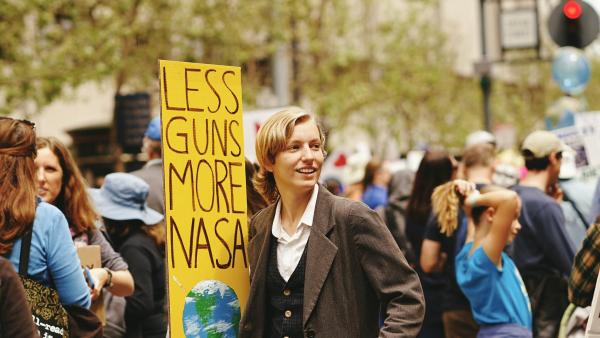If you want to know what a state-of-the-art election system looks like, you won't find it in the United States. Pippa Norris runs the Electoral Integrity Project at Harvard and the University of Sidney, which monitors elections in 153 countries. She told Rehman Tungekar that most of our democratic neighbors do a better job.
Politics and History
Glen Weyl is an economist at Microsoft Research and he’s invented a whole new formula for collective decision making. It’s called quadratic voting — it sets up a marketplace where you can trade your vote, based on what you care about most.
Consider that the average American voter doesn't understand basic political facts like who their local representatives are. Should they still be allowed to vote? Philosopher Jason Brennan makes the case for an epistocracy: the rule of the knowledgeable.
Cathy O'Neil, data scientist and author of the blog mathbabe.org, warns that politicians are perilously close to being able to tell voters only what they want to hear.
When suicide bombers blow up crowded marketplaces, or a lone shooter attacks a nightclub, one question we’re always left with is why. This hour, a look at the underlying psychology of political violence.
Writer Basma Abdel Aziz on the transformative effect of the Egyptian uprising
Journalist Mark Engler explains why some protests flourish whereas others fail.








